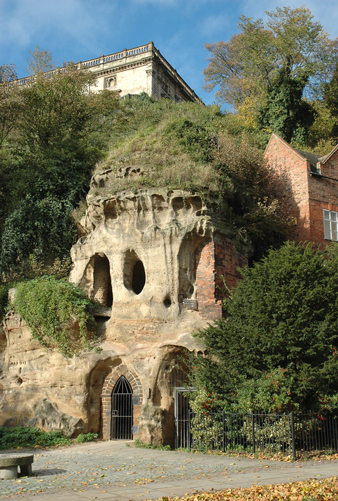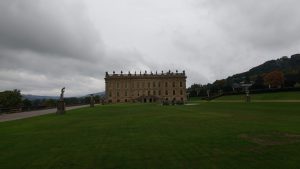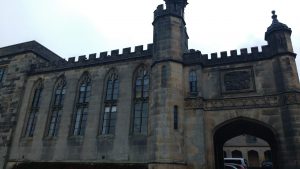
May 2, 2019, by Ross Wilson
Using field trips as learning labs!
As part of the Liberal Arts degree, we will engage with the following issues over the course of the three years of the programme:
- Time – an introduction to Liberal Arts
- Cities – space, place and belonging in the city
- Objects – understanding design and communication
- Identity – exploring migration and citizenship
- Power – assessing control, authority and organisation
These ideas are supported by your studies in the humanities, arts, languages and social sciences. The approach to Liberal Arts is to apply an interdisciplinary perspective so we look to show how the world can be examined for all its complexity by looking beyond disciplinary boundaries. This presents us with challenges: how do we think in interdisciplinary terms? We do this within our classes by giving examples. We might ask you to consider applying ‘deep time’ concepts to contemporary issues, to assess your individual time perspective or to examine how you respond to the environment of the city. We use practical examples to immerse you in these ways of thinking and to make something which might appear abstract into something concrete and applicable. We want Liberal Arts to be an exercise in applied knowledge. You use your experience, awareness and skills to answer questions and to solve problems. As part of this approach to teaching and learning we make use of field trips to give you insight into the ideas and concepts we are discussing. Over the past year, we have visited:

Chatsworth House, Derbyshire
- Peak District (Ilam, Chatsworth, Cromford Mills)
- City of Caves, Nottingham
- Museum of Justice, Nottingham
- Halloween Walk, Nottingham
- Old Market Square, Nottingham
- PLACE, Nottingham

Ilam Hall – site of a Liberal Arts field trip!
These field trips are vitally important as they mean that we can see the ideas we learn and the concepts we engaged with put into practice. Field trips place us physically into contexts where we can see how things work, how we can address issues and how we can make a difference.
In our forthcoming trip to Berlin, we have set out places to visit which allows us to address the four main concepts of the core modules. We look at how time is experienced across the city by examining how Berlin lives with its past. We assess the urban environment by walking through the parks and streets of the city and understanding how a ‘sense of place’ has been formed there. We will be investigating the objects of the city such as the remains of Berlin’s division and the material culture of the capital city. The sites of immigration, places of forced deportation and locales of identity that mark Berlin for its residents but also for people across the rest of the world will be studied. Finally, we’ll look at how power and protest have shaped Berlin over the course of the twentieth century and into the present day.
This allows us to use Berlin as a laboratory for Liberal Arts. It is within the city that we will be able to think across disciplinary boundaries as we explore how history, geography, politics, philosophy, sociology and psychology can be combined to create innovative approaches.
No comments yet, fill out a comment to be the first

Leave a Reply